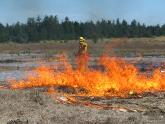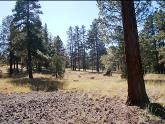

|
Terrestrial Restoration Ecology Lab |
|
Current research in the Terrestrial Restoration Ecology lab falls into three general areas.† Please click on the topics for more information. |
|
There is a growing acceptance of the fact that humans are an integral part of many ecosystems.† The actions that we take can enhance degraded ecosystem services.† Restoration ecology is a topic that therefore is of applied significance.† However, it also is of basic significance as it provides the means to evaluate our understanding of how ecosystems function, are assembled, etc.† Restoration ecology has famously been called an Ďacid testí of ecology. |
|
There are a wide range of quantitative techniques available for use in ecology.† Learning about those techniques is one challenge; as is learning how to choose amongst them.† However, an even more powerful skill is to be able to design quantitative tools that are applicable to specific situations. |
|
Vegetation dynamics reflect the net effects of many factors, including climate, abiotic environment, biotic interactions, and disturbance history.† Understanding how these factors interact and affect species coexistence and productivity is a major research area within ecology.† These studies are complicated, however, by the long time-scales over which changes may occur and by the complex multivariate nature of the resulting data. |



|
Research Areas |
